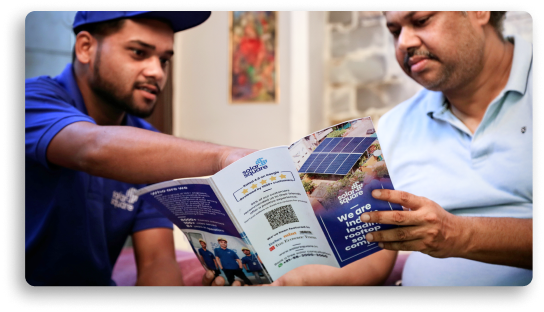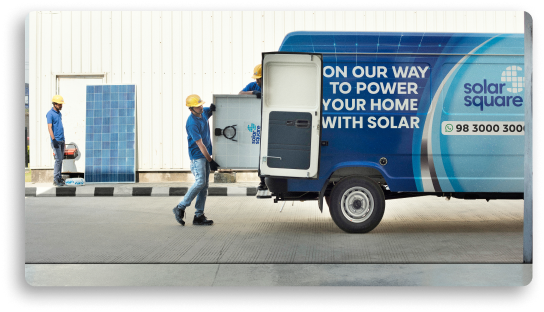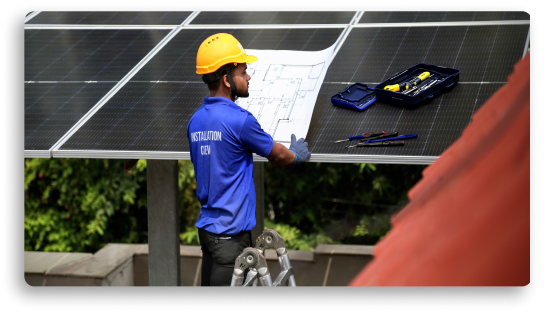
Free in-home consultation
A SolarSquare consultant will survey your home, answer your questions and generate a custom digital design of what the solar system will look like on your roof.
Schedule a free consultation
Personalised solar proposal & dedicated manager
Based on your requirements, our team will create a custom proposal for you. A Delight Manager is also assigned to answer your queries and keep you updated on the project.

Paperwork and subsidy assistance
End-to-end paperwork management by us for hassle-free coordination with the local discom and securing subsidy.

Step-by-step professional & safe installation
Once you submit the advance amount, your rooftop system will arrive in stylish delivery vans and installed in a timely, clean and professional manner.

Connection to the grid
We coordinate with the discom to connect your system to the power grid and install a new electricity meter.

Power on your new system
Switch on your system to enjoy reduced electricity bills and an energy-independent future!

Deep cleaning and maintenance
We’ll call you to schedule quarterly deep cleaning and preventive health checks of your system for 5 years.

.svg)
+(1).jpg)



























